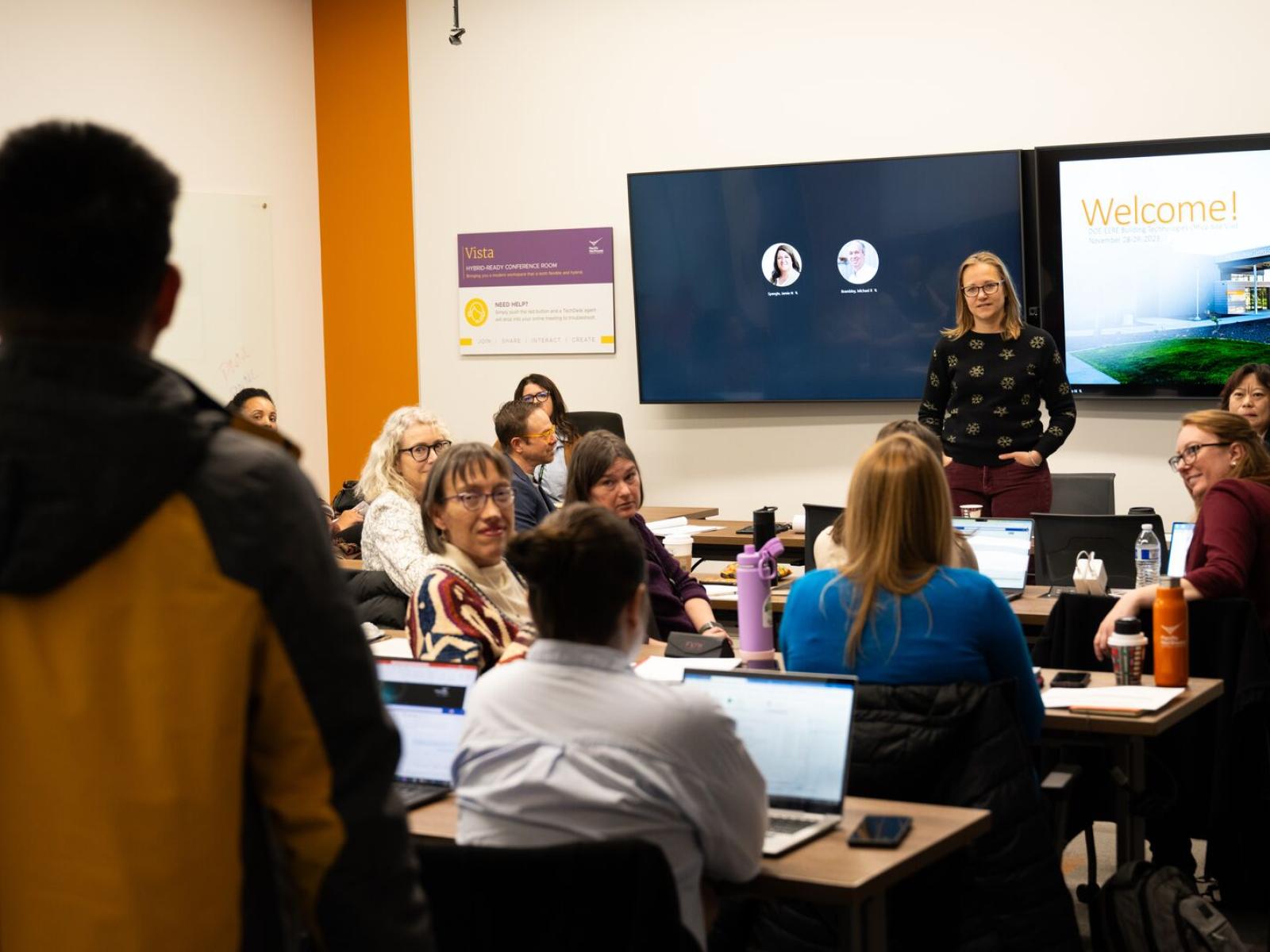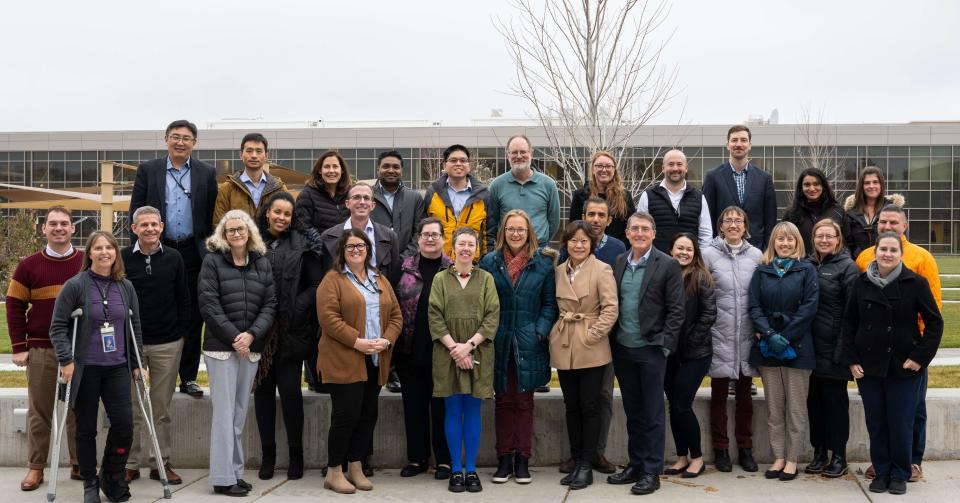Fireside Chat Illuminates Equity and Justice in Buildings Research
How can DOE and PNNL buildings experts do a better job of extending the benefits of efficiency and electrification to all of America?

BTO’s Mandy Mahoney (standing at front) talks with a staff member from PNNL during the fireside chat, held November 28 in PNNL’s Discovery Hall.
(Photo by Andrea Starr | Pacific Northwest National Laboratory)
A “fireside chat” meeting with a top Department of Energy (DOE) official lacked a cozy fireplace, but made up for it with a warm, and sometimes frank, exchange of ideas for incorporating equity and justice considerations in buildings-related research, development, demonstration, and deployment (RDD&D).
The chat was one stop on Mandy Mahoney’s November 28–29 visit to Pacific Northwest National Laboratory (PNNL). The meeting, with more than 30 staff from PNNL participating, touched on some of the challenges around DOE’s drive to improve the efficiency of the nation’s homes and buildings, transition to a clean energy economy, and do both in a just and equitable manner that benefits all sectors of American society.
Mahoney, director of the Building Technologies Office (BTO) since June, spoke about her new role and noted the job will provide an opportunity to better align the office’s research with equity and justice, issues that are personally important to her.
Chat explores community engagement, improved processes, and more
One key current focus of buildings-related RDD&D involves moving toward broader use of electricity in homes and buildings—“electrification”—and away from fossil fuels.
Within that realm, one of the methods for advancing energy efficiency and electrification involves partnering with communities and community groups, sometimes in disadvantaged regions, to install and test new technologies in homes. In addition to homeowner benefits, the resulting knowledge from such efforts helps inform future technology deployment in cities and states across America. The technologies can include electric heat pumps, heat pump water heaters, and other efficient appliances.
In designing these types of projects, Mahoney asked meeting participants to challenge their own personal assumptions about what communities need, and to listen.
Along these lines, PNNL’s Ebony Mayhorn shared her experiences with a PNNL project in a disadvantaged area of Houston, Texas, that sought to increase use of electric heat pumps in homes and strengthen the heating, ventilation, and air conditioning (HVAC) workforce. With natural gas in that region cheaper than electricity, heat pumps can be a hard sell. “We had to look at other ideas, such as integrating additional clean technologies instead of just focusing on heat pumps,” Mayhorn explained.
PNNL’s Alice Soulek raised a different issue. She felt that DOE funding application processes can be improved to better meet the needs of communities and community groups, as application requirements and deadlines sometimes prove burdensome.
It was noted in the meeting that BTO has recently taken steps to improve certain processes. The Buildings Upgrade Prize intentionally focused on simplifying application elements, with disadvantaged communities in mind. The result was a shorter application, a longer time frame for completion, and more availability of technical assistance.
Mahoney indicated that integration of justice and equity considerations in research is a journey—and it will involve trying and testing new approaches.
The fireside chat surfaced a number of other topics connected to equity and justice, including do-it-yourself technology installation strategies, effective relationship management, state and local government zoning and other policies, and property taxation.
Mahoney and team tour PNNL facilities
The two-day PNNL visit provided Mahoney an opportunity to not only get better acquainted with research staff, but gain a firsthand look at facilities and projects supporting her office’s objectives. Mahoney was joined in the visit by DOE colleagues Amy Royden-Bloom, manager of the Residential Building Integration program, Payam Delgoshaei, BTO’s HVAC & Refrigeration technology manager, and Pradeep Prathibha, BTO fellow on controls. The visitors’ facility stops included the PNNL Lab Homes, Systems Engineering Building, and the Grid Storage Launchpad.

“It was a very productive visit, and I’m convinced we’re going to see many positive outcomes in the future,” said Bing Liu, PNNL’s buildings sector lead. “We were thrilled to have the opportunity to meet with Mandy and her team and to not only introduce them to our staff and facilities, but also show them our campus and community."
Published: December 14, 2023